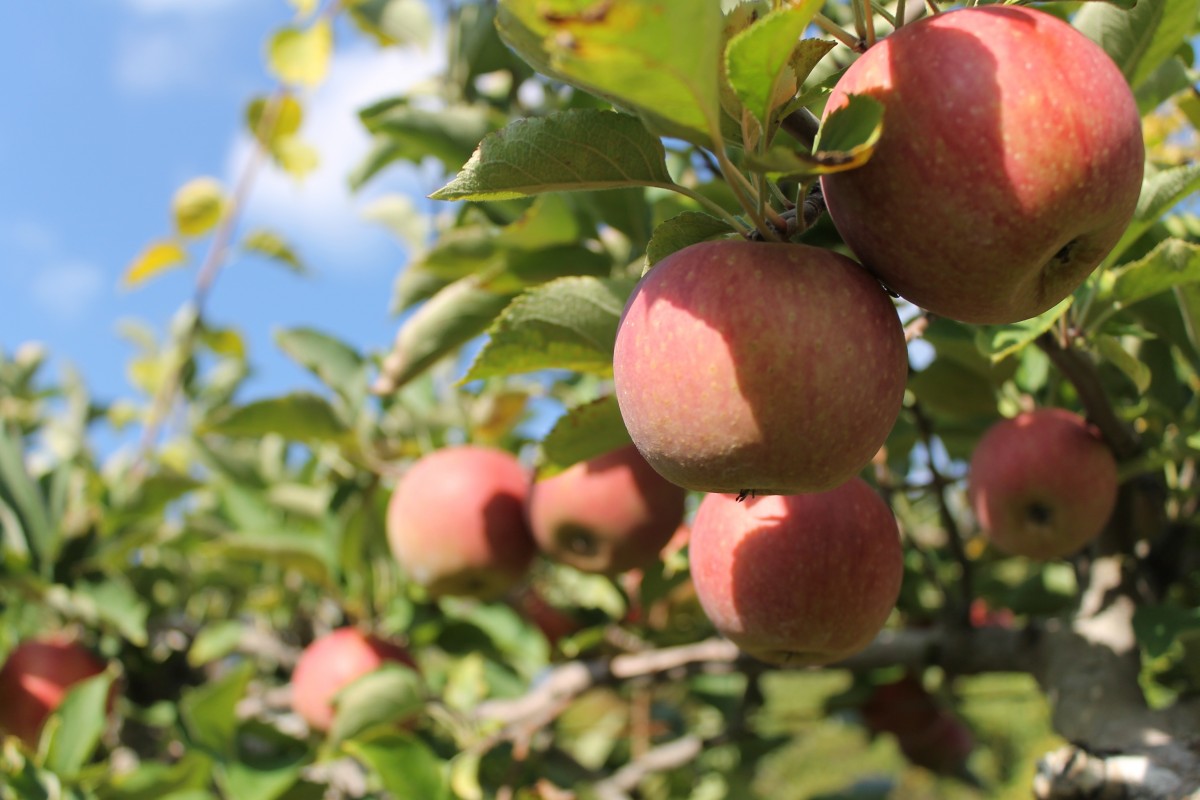31
Jul
An Apple a Day? To Keep a Healthy Gut, Make Sure It’s Organic
 (Beyond Pesticides, July 31, 2019) When it comes to maintaining a healthy gut, organic apples shine, while conventional, pesticide-treated apples come out bruised and wanting, according to a new study published in Frontiers in Microbiology by a team of Austrian researchers. The study is the latest to compare the potential health benefits between foods grown with either organic or chemical-intensive farming practices. As with past analyses on milk, meat, strawberries, tomatoes, and a range of other foods, organic practices were found to produce the healthiest options.
(Beyond Pesticides, July 31, 2019) When it comes to maintaining a healthy gut, organic apples shine, while conventional, pesticide-treated apples come out bruised and wanting, according to a new study published in Frontiers in Microbiology by a team of Austrian researchers. The study is the latest to compare the potential health benefits between foods grown with either organic or chemical-intensive farming practices. As with past analyses on milk, meat, strawberries, tomatoes, and a range of other foods, organic practices were found to produce the healthiest options.
“Freshly harvested, organically managed apples harbor a significantly more diverse, more even and distinct bacterial community, compared to conventional ones,” said Gabriele Berg, PhD to the Guardian.
Scientists reached this conclusion by analyzing the entire apple microbiome, from the peel and fruit pulp, to the seeds, stem and calyx (opposite from the stem, where the apple flower fell off). Organic and chemically produced apples were weighed and divided, and ran through a series of tests to determine the number of microbiota as well as the diversity therein.
Both conventional and organic apples contained roughly the same number of total bacterium, at roughly 100 million. Interestingly, the bulk of microbes were found not in the skin or fruit of the apple, but the stem, seeds, and calyx. In other words, if you want to gain all the microbial benefits an apple has, do not compost your apple cores, and instead eat them whole.
The two types of apples diverged in regards to diversity and colonization patterns of the microbial community. Every area, from peel to core, of an organic apple contained greater bacterial diversity than its conventional counterpart. Moreover, the distribution of these microbes were also more even throughout organic apples than conventional apples. Organic apples were dominated by Lactobacillus and Bifidobacterium, genera well known by researchers to beneficial to the human gut, and often contained within commercially available probiotic supplements. They also contained significantly higher levels of Methylobacterium, which is known to enhance the flavor of certain fruits.
Conventional apples, while containing the same number of bacterium, were dominated by Burkholderiales, of which some may be pathogenic to humans. They also contained Enterobacteriales, including some, (albeit low) amount of human pathogenic Escherichia-Shigella, which was not found in any organic apple sample. And growing practices for chemical-intensive apple production may be harming the ability of the apple tree itself to thrive, as researchers found higher numbers of Ralstonia and Erwinia bacterium, known for their ability to harm plant health.
“Organic apples conceivably feature favorable health effects for the consumer, the host plant and the environment in contrast to conventional apples, which were found to harbor potential food-borne pathogens,” researchers wrote in the study.
Food is essential to life, and in so many realms, organic agriculture is the best path to balance the need for human consumption to work with, rather than against, nature. When compared to chemical-intensive agriculture, this study reveals that the food grown in organic soil is better for our microbiome. All-together, switching from a conventional to organic diet has concrete impacts on health, reducing the level of pesticides in the body, and lowering cancer risk. It also has economic benefits, boosting local economies where there is a high level of organic agriculture, as well as farmers’ bottom lines. A broad scale transition to organic is also critical to address mounting crises in the environment, including the pollinator and insect apocalypse.
It is no wonder that American consumers are increasingly seeking out organic foods. As more and more studies discover the benefits many have already realized for their own health, wallet, or local environment. Read more about how to protect, strengthen and grow organic agriculture on Beyond Pesticides “Why Organic?” webpage.
All unattributed positions and opinions in this piece are those of Beyond Pesticides.
Source: The Guardian, Frontiers in Microbiology (peer-reviewed journal)
With attention on the connection between pesticide use and agricaultural growing practices
An
When it comes to maintaining a healthy gut, organic apples shine
A new study is clarifying age-old advice about keeping the doctor away.










